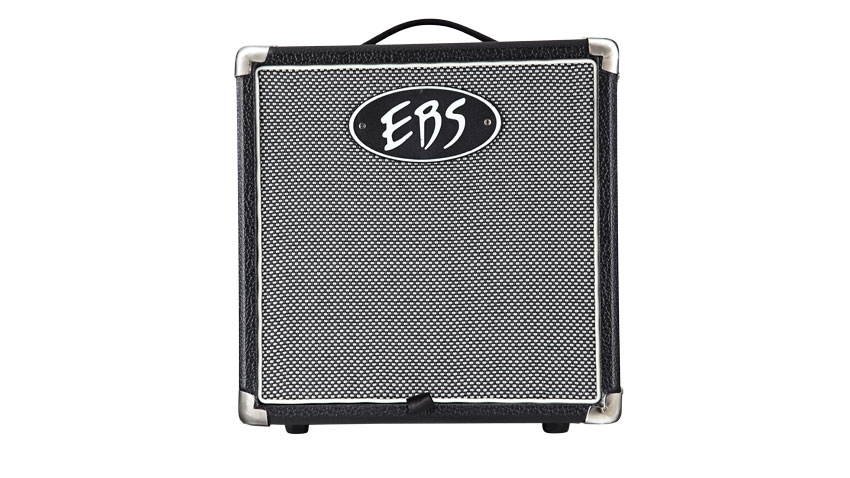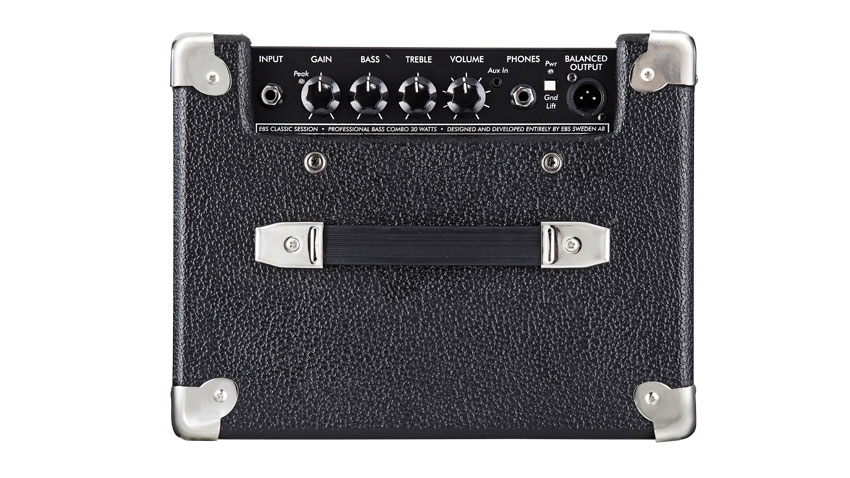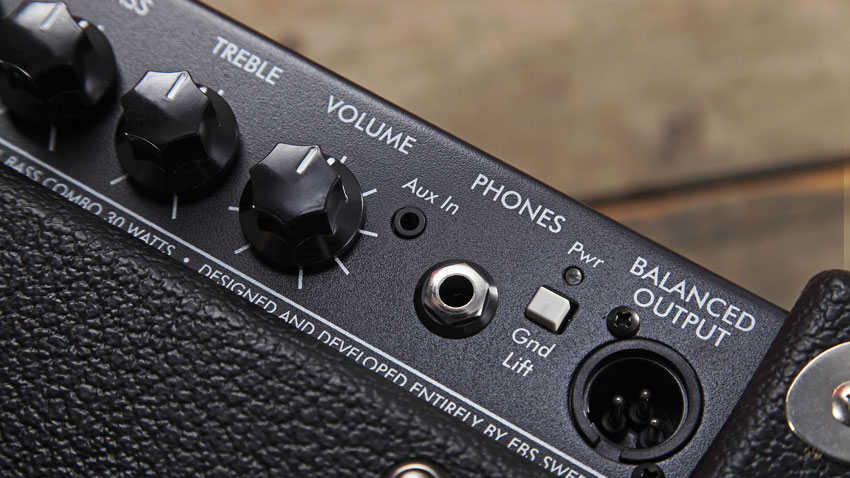MusicRadar Verdict
This is primarily suited for beginners, because it offers decent sounds as well as connections for headphones.
Pros
- +
Styling. Size. EBS-style tonal qualities. Personal practice facilities.
Cons
- -
Small size dictates small speaker.
MusicRadar's got your back

EBS Classic Session 30 bass combo

EBS Classic Session 30 bass combo (controls)

EBS Classic Session 30 bass combo (close-up)
After building up a pretty impressive reputation over the past few years, EBS has become one of the top manufacturers of bass equipment in the world. That's no mean achievement in an industry that has to deal with the most destructive frequencies produced by any musical instrument: the mighty bass guitar!
"The Classic Session 30 slots in as the baby of the series, which already includes more grown-up 60- and 120- watt versions"
Here at MusicRadar, we are far more used to seeing the EBS name on a full or half-stack, but this Classic Session 30 is an entry-level combo that's designed to be practical, easy to transport and highly affordable.
It slots in as the baby of the Classic Session series, which already includes more grown-up 60- and 120- watt versions. With a silver grille cloth, black vinyl covering, strap handle and metal corner protectors, it looks both smart and functional, and it also maintains the classic EBS appearance.
The Session 30 comes loaded with a single eight-inch driver, and although that may seem a bit on the small side for a bass combo, the cabinet is tuned for the best-possible bass response and, of course, this size of speaker allows for a much smaller design overall - primarily what this concept is all about.
With just a single input socket, the control panel is kept as basic as possible, but it does have the benefit of an adjustable auxiliary input and a headphone socket, making it ideally suited for those intimate practice sessions, or for working out your favourite basslines.
The XLR output socket is another welcome addition, because it allows for connection to a home recorder, a studio desk or to a much larger PA system, which makes rehearsals and small gigs a more realistic proposition.
Sounds
For amplifying bass, anything that's this compact will obviously have limitations. However, the Session 30 still packs a decent punch volume-wise, and produces some surprisingly good sounds.
Want all the hottest music and gear news, reviews, deals, features and more, direct to your inbox? Sign up here.
"Careful blending between the input volume and the master allows us to achieve various degrees of overdrive for a seriously rich delivery"
Better still, these are in keeping with much larger models from the range. Running the tone controls flat, we get the natural sound of our bass coming through, but both tone controls offer cut or boost, so there's plenty of range to manipulate your sound, if needed.
As with any small bass combo, it's always best to keep the input volume slightly lower than you would on a larger amp to achieve the best tonal responses, particularly when boosting the bass frequencies, and careful blending between the input volume and the master allows us to achieve various degrees of overdrive for a seriously rich delivery.
We also find some great honky/ funky sounds that are somewhat unexpected from such a small speaker, but more importantly, thanks to the care taken over the design, the unit can be run at full volume without damaging the speaker.
This means that the novice can simply enjoy experimenting with the sound options this combo can produce, while more experienced players have a highly usable practice or recording amp that won't clutter the living room, and can be plugged into a PA for higher-volume use.
This is a great combo for any novice player to learn the ropes, but it's also well equipped enough for home or rehearsal studio practice sessions or smaller gigs, thanks to that XLR output.
Having good sounds when you're working out runs and phrases makes the whole experience so much more satisfying, and knowing that there's no chance of causing any damage to the speaker - or the neighbours - no matter how hard you drive the volume, is constantly reassuring.
And if silent practice is what you have to do, then the auxiliary input and headphones socket are perfect. In conclusion, there are few bassists of any age or ability who wouldn't be able to find a use for this lil' baby.